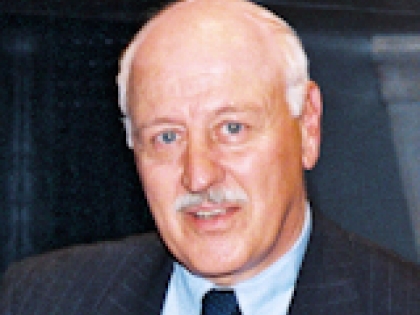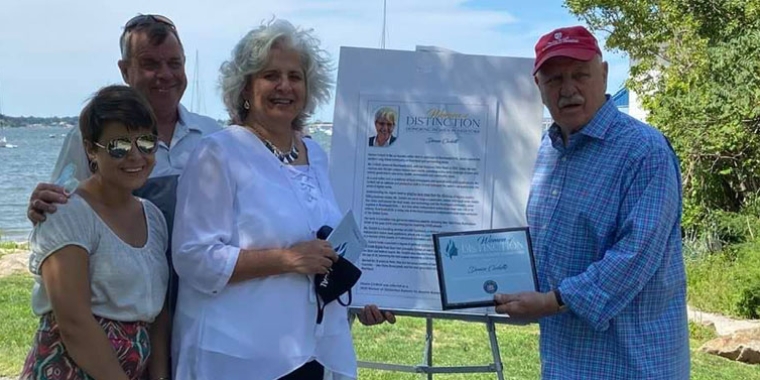
Senator Ken LaValle: State Budget Includes Historic Investments To Protect Our Water and Our Environment
April 21, 2017
-
ISSUE:
- Environment

April 13, 2017 – Senator Ken LaValle announced that the approved NY State Budget includes record funding to protect our environment for a second consecutive year.
Senator LaValle said, “Throughout my career, I have made it a priority to preserve and protect our fragile environment for this generation and the next. We have been extraordinarily successful in increasing support for environmental initiatives for the second year in a row.” He continued, “It’s critically important that we address water issues today to ensure clean water in the future. This year’s budget provides record investments to ensure that we protect the health and well-being of Long Island families.”
Major commitment to clean water with $2.5 Billion initiative
Senator LaValle noted that the greatest environmental news in this budget is the $2.5 billion investment that will be dedicated to clean water efforts. He said, “New York continues to demonstrate our national leadership on environmental issues. We are now making the largest single investment in clean water initiatives in New York’s history. It’s necessary to address water quality issues and infrastructure now in order to keep our water pristine for the future.”
The investments fund critical water quality priorities including:
- $1 billion for a new Water Infrastructure Improvement Act of 2017 to fund municipal water infrastructure projects over the next five years;
- Continued funding ($245 million) of the Water Quality Improvement Program grants;
- $150 million for a new intermunicipal water infrastructure grant program to help fund projects that serve multiple municipalities and promote cost savings;
- $100 million in new funding for municipal water quality projects that would not currently qualify for existing state grants;
- $75 million for a new state rebate program to incentivize the replacement of failing septic systems and cesspools;
- $20 million for the replacement of lead pipes, with preferences given to communities with a high percentage of elevated childhood lead blood levels;
- $100 million over five years for the state Superfund program to be used for clean water projects;
- $30 million over five years for solid waste and drinking water mitigation and remediation projects;
- $275 million in continued funding for Clean Water and Drinking Water State Revolving Funds;
- $10 million for a new emergency infrastructure loan program to repair breaches of infrastructure that cause an imminent threat to the public health or the environment
- Mandatory testing of public water systems (serving 25 users or more) for PFOA, PFOS and 1,4 Dioxane
- Up to $3 million to Suffolk County and SUNY Stony Brook for research, development and pilot projects to develop cost effective methods to address nitrogen and pathogen loading; $1 million to SUNY Stony Brook for the treatment and/or removal 1,4 Dioxane
- Funding for new measures to control point-source pollution, protect water sources, promote green infrastructure, address water contamination, and improve data collection to better track water quality information.
- $250,000 for the Long Island Commission for Aquifer Protection
- $900,000 for the Long Island South Shore Estuary Program
- A new Drinking Water Quality Council to bring together experts to review existing evidence, study contaminants of concern, and make recommendations to the Department of Health regarding drinking water safety, including state specific thresholds and public notice procedures
NYS Environmental Protection Fund (EFP): $300 million secured for two budget years in a row
For the second year in a row, the NYS Environmental Protection Fund (EPF) was funded at $300 million. The Environmental Protection Fund (EPF) has been a key source of state aid assisting local communities in undertaking a range of projects from drinking water quality to wetlands protection, from community parks enhancement to recycling programs, and from farmland preservation to controlling invasive species. Senator LaValle said, “Last year, we fought for and restored the historic funding of $300 million for the EPF. This year, we were steadfast in our resolve, which resulted in another $300 million being added to the fund. Three years ago, the EPF sunk to only $177 million. The restoration of this funding illustrates our priority and commitment to the environment.”
Funding For Long Island Pine Barrens Commission And For Fighting The Southern Pine Beetle
“In the budget this year, I was also able to secure $2 million for the Long Island Central Pine Barrens Commission, which protects a critical source of drinking water for Long Island. I am proud to have created the commission back in 1993 to protect groundwater, surface water and drinking water for Long Island residents. The Commission has shown itself to be a tremendous steward of the environment. It is a vital entity that works to ensure the preservation of our lands and the quality of our water every day.” Senator LaValle said.
The Southern Pine Beetle (SPB) been the most destructive pest of southern pine forests. Infested trees were identified in Suffolk County beginning in October 2014. These were the first verified reports of SPB-infested trees in New York State. The Southern Pine Beetle is now widespread throughout Suffolk County. According to Senator LaValle, there are $43 Million in two sources of funding in the new budget from which the monies can be accessed for Long Island Southern Pine Beetle needs.
Senator LaValle continued, “The Southern Pine Beetle has the potential to become an environmental nightmare if we don’t continue to take action. The NYS Department of Environmental Protection and environmental organizations, like the Pine Barrens Commission, have been at the forefront of working to eradicate this destructive pest over the last several years. I am estimating that this year approximately $3 Million should be available toward the eradication of the Southern Pine Beetle on Long Island.”
The Peconic Bay Estuary Program
“The Peconic Bay Estuary Program has been working to restore the natural environment and protect historic fishing, shell fishing, and tourism industries which continue to contribute millions of dollars annually to New York’s recovering economy. It’s vitally important that the state provide support for the program and I am pleased to report that for the second year in a row, we have been able to obtain $200,000 to assist in the Peconic Bay Estuary Programs’ mission.” Said Senator LaValle.
###
![]()
Share this Article or Press Release
Newsroom
Go to Newsroom


